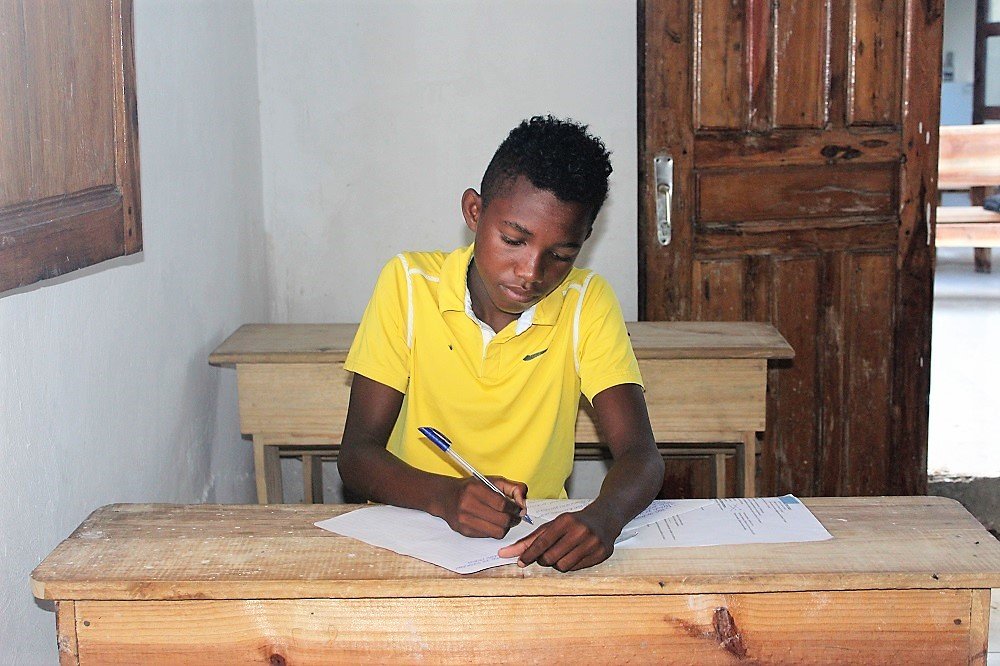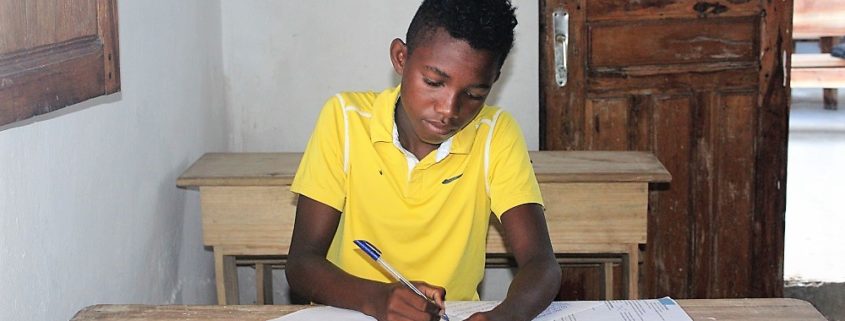The New Reef Doctor School: Creating Future Leaders of Positive Change
Informed decision-making is an essential component of sustainable development and conservation in rural communities. For example, if you aim to sustainably exploit the marine environment you need to be able to interpret a graph on fisheries catch data. Therefore, the importance of a good education is undeniable. Although primary schooling is mandatory from the age of six in Madagascar, less than 50% of children have received five years of schooling by the age of 15 (OPHI). The education system is failing, with resources and facilities increasingly unable to function and accommodate the growing number of children requiring access to education. Reef Doctor is increasingly asking the ethical question ‘how can the communities we work with make informed decisions about their future if they are unable to access information through reading, disseminate information, and keep records of past events/changes if they cannot write?’.
In Ifaty, and indeed all across Madagascar, many parents cannot afford to send all of their children to school and many have to decide which of their children will get any kind of primary school education. Many schools in the area, like the primary school in Ifaty, are too small. In Ifaty, half the children of school going age attend school in the morning and the other half in the afternoon. Teachers do their absolute best with the limited teacher training available. Furthermore, the vast majority of public primary schools employ an archaic teaching method because the tools and resources are not available to introduce different teaching styles into the classroom.
After witnessing the deterioration of the schooling system in our home village of Ifaty, Reef Doctor directors, Roderick Stein-Rostaing and Emma Gibbons, decided enough was enough and recently started a programme for change, the new Reef Doctor school! This new initiative aims to deliver a high standard of education and skill development training to a few local children in order for them to become ambassadors and future leaders of their community. The new Reef Doctor school will provide the skills and tools for these children to become the access point for communities to learn about wider social issues such as climate change and declining fish stocks, which affect everyday lives. The vision is to provide a platform that empowers communities to make informed decisions about their future.
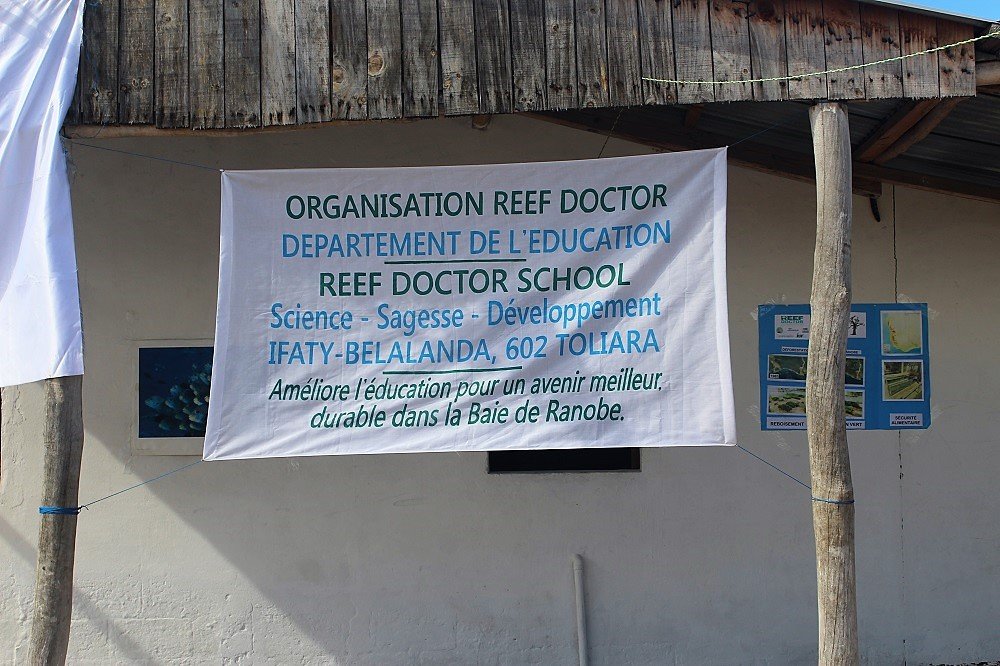
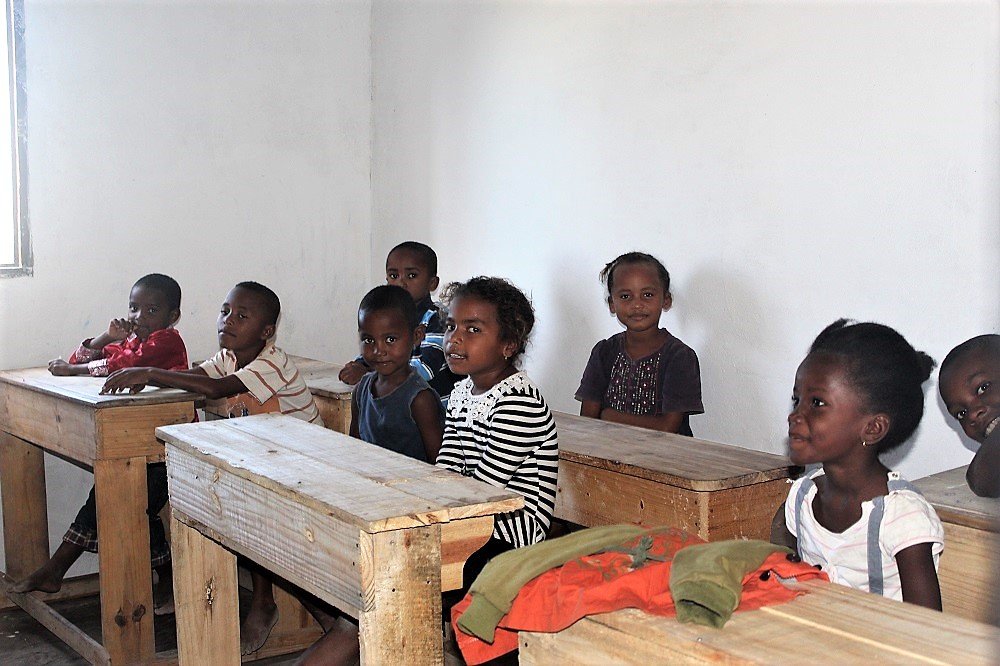
Based out of the home of Director Emma in Ifaty village, the Reef Doctor school is now attended by 25 children from the village. Four teachers have been employed to teach the children and they work closely with the Reef Doctor Education Department to improve teaching methods and deliver the children a broader programme of education in Science, Mathematics, French, Malagasy, English, Geography, History, Sport and of course, Environmental Studies. The school has been up and running since September 2016 and is going from strength to strength. In addition to classes in the Reef Doctor School, pupils also attend workshops at Reef Doctor and community events along with the Junior Reef Doctors.
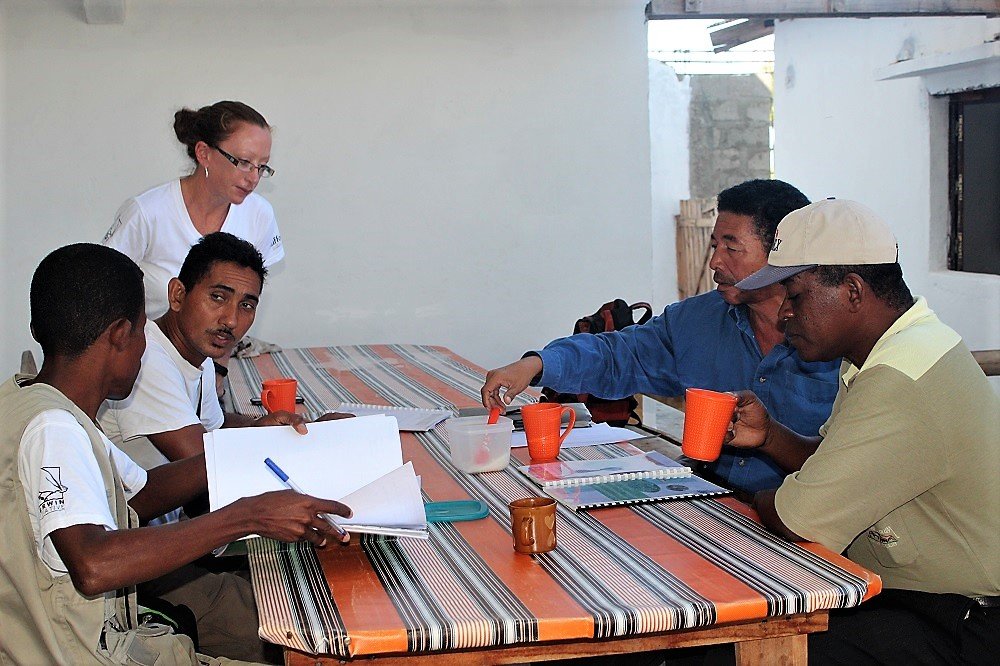
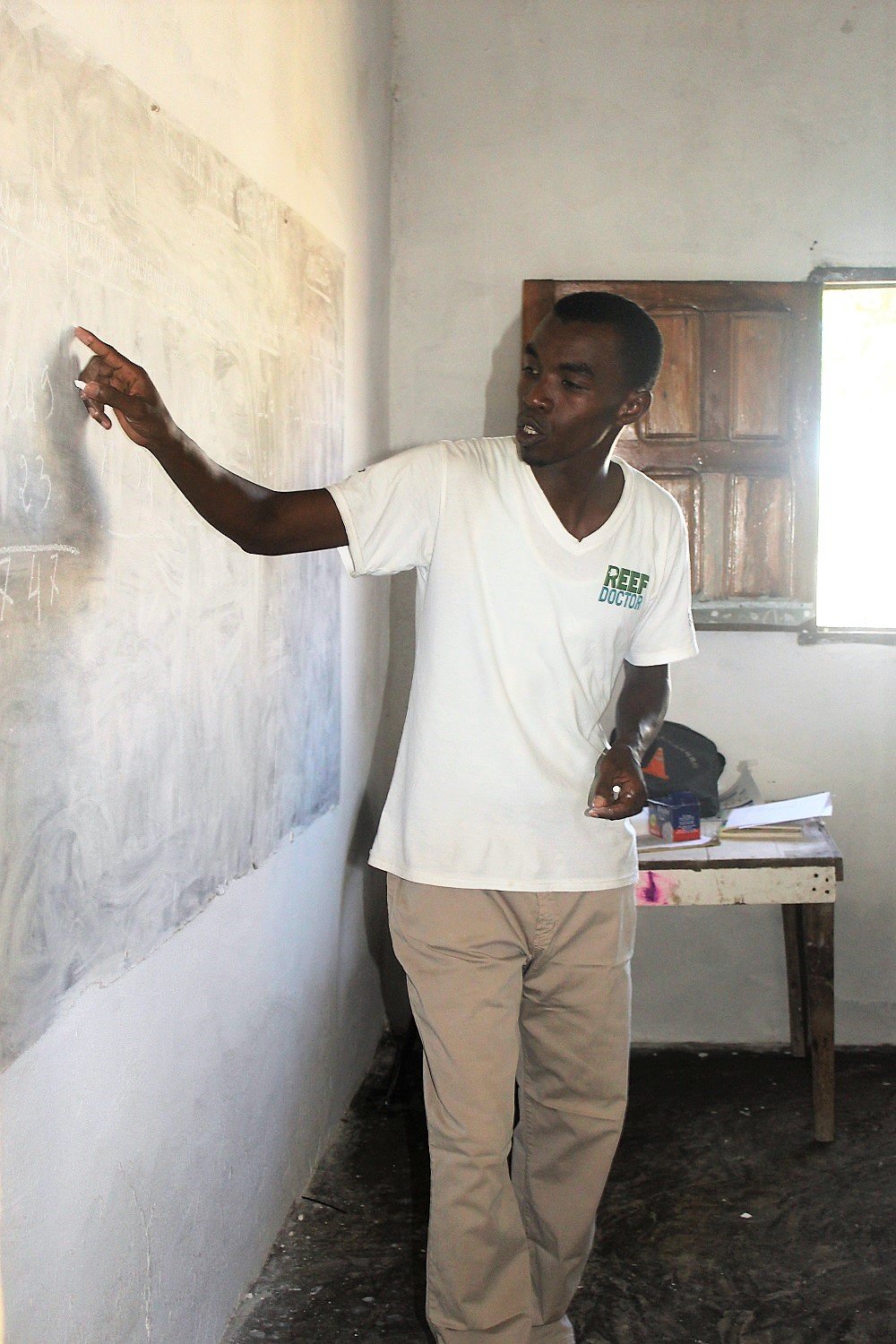
This endeavour received a huge boost recently when a representative of CISCO, the Regional Department of Education in Toliara, visited the school. The school is now being registered with the government to include permission to teach classes to the level of high school diploma. A huge advantage of the visit and the registration of the school is that the school, once registered, will be eligible to receive assistance from a food programme, which will mean that the children will receive a nutritious lunch during their school day to fulfil their learning potential. The school is a testament to Roderick and Emma’s dedication to the community where they have resided for over a decade. They hope to provide the opportunity for children to receive an education that will help them to learn to investigate and question the world around them and ultimately understand enough about that world to make informed and educated decisions that improve their quality of life and the lives of those in their community.
